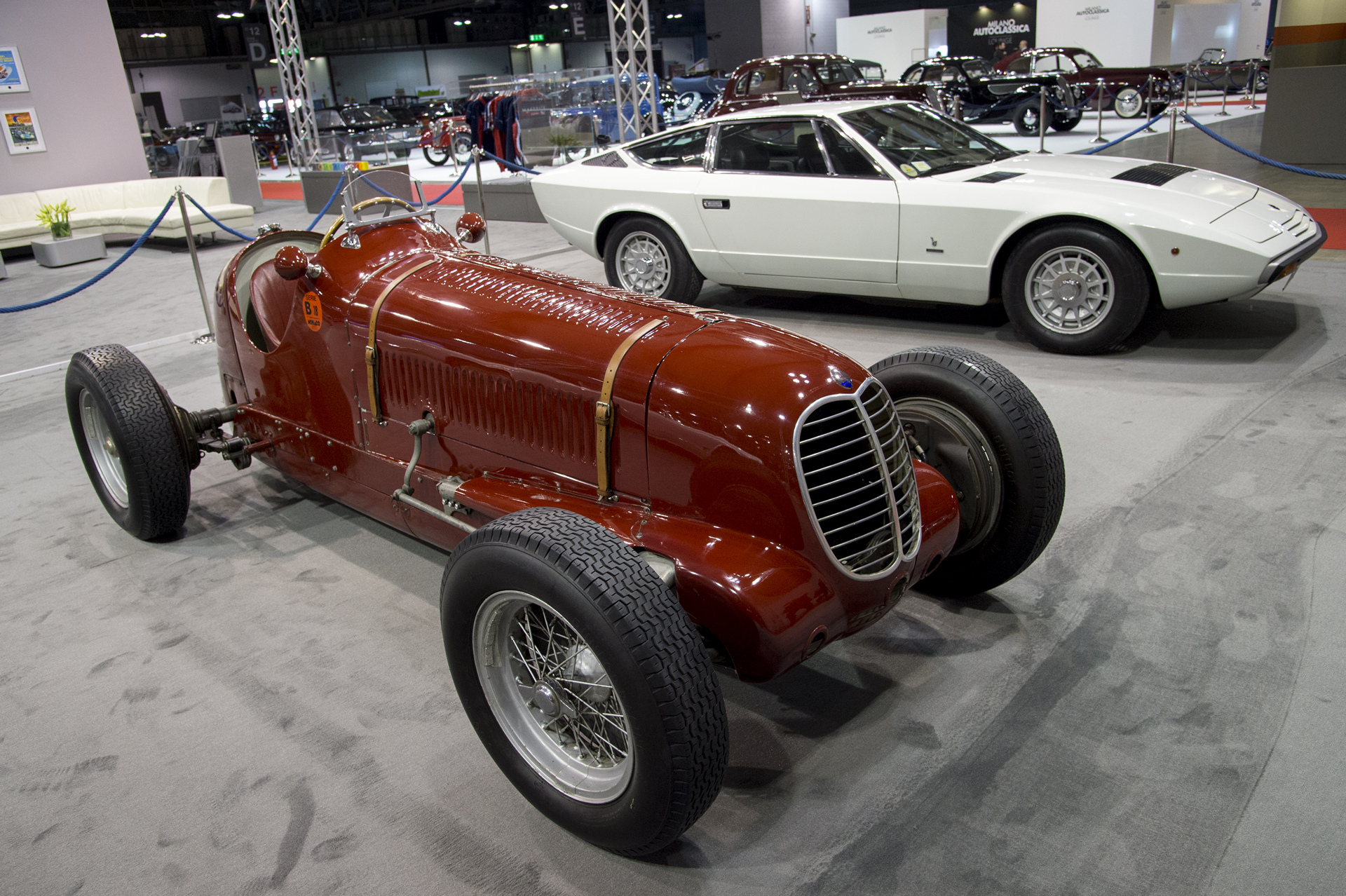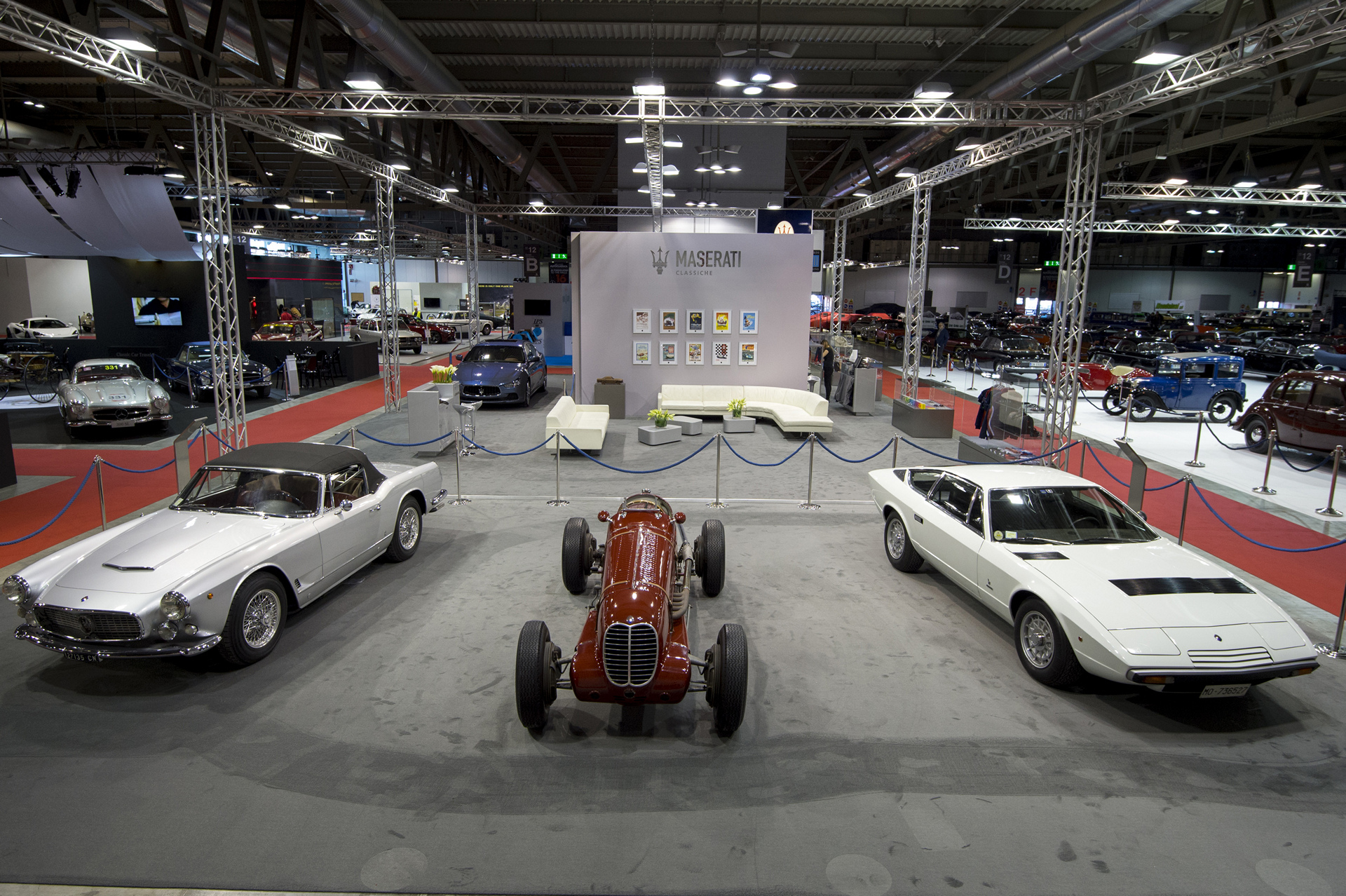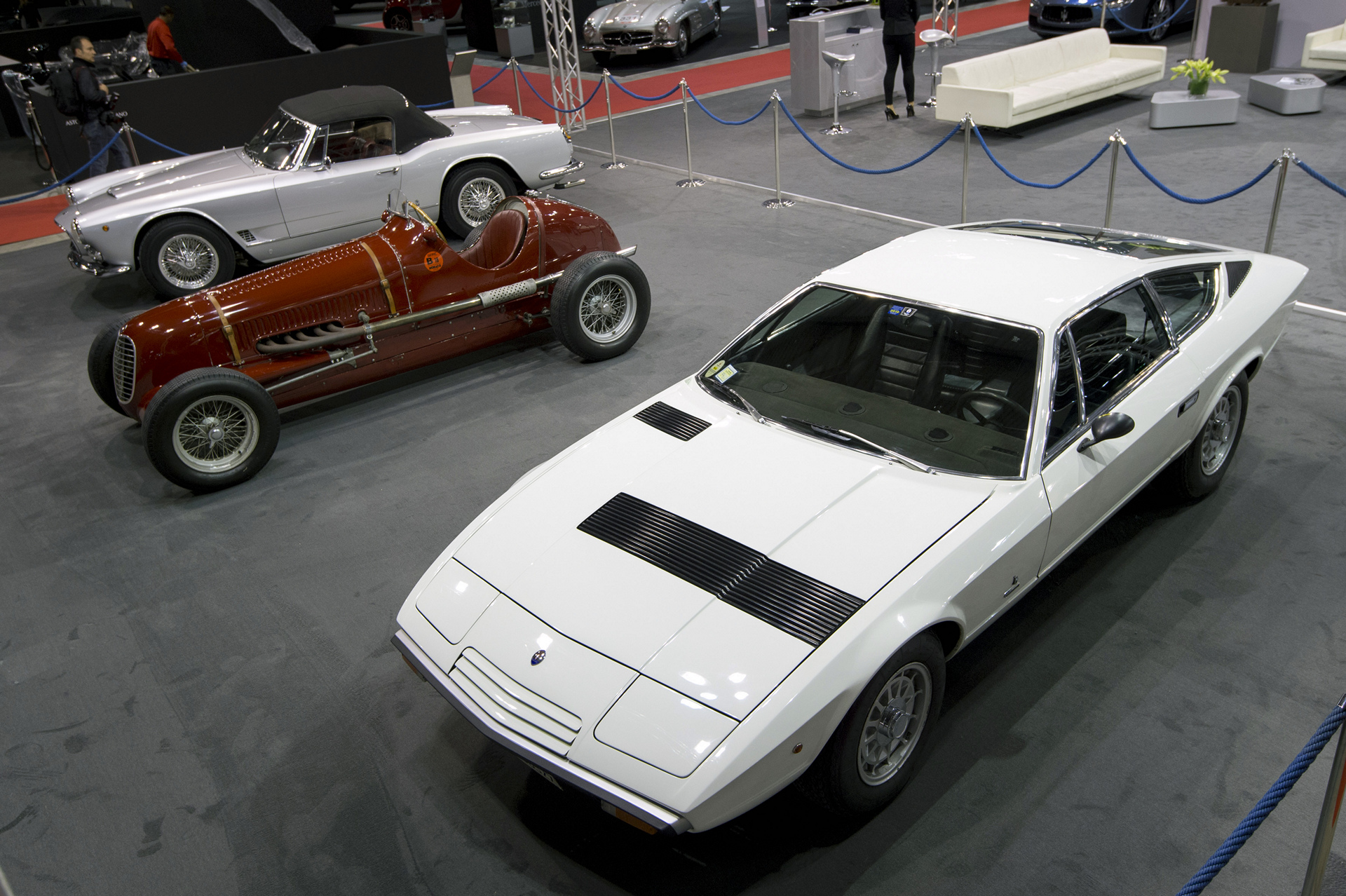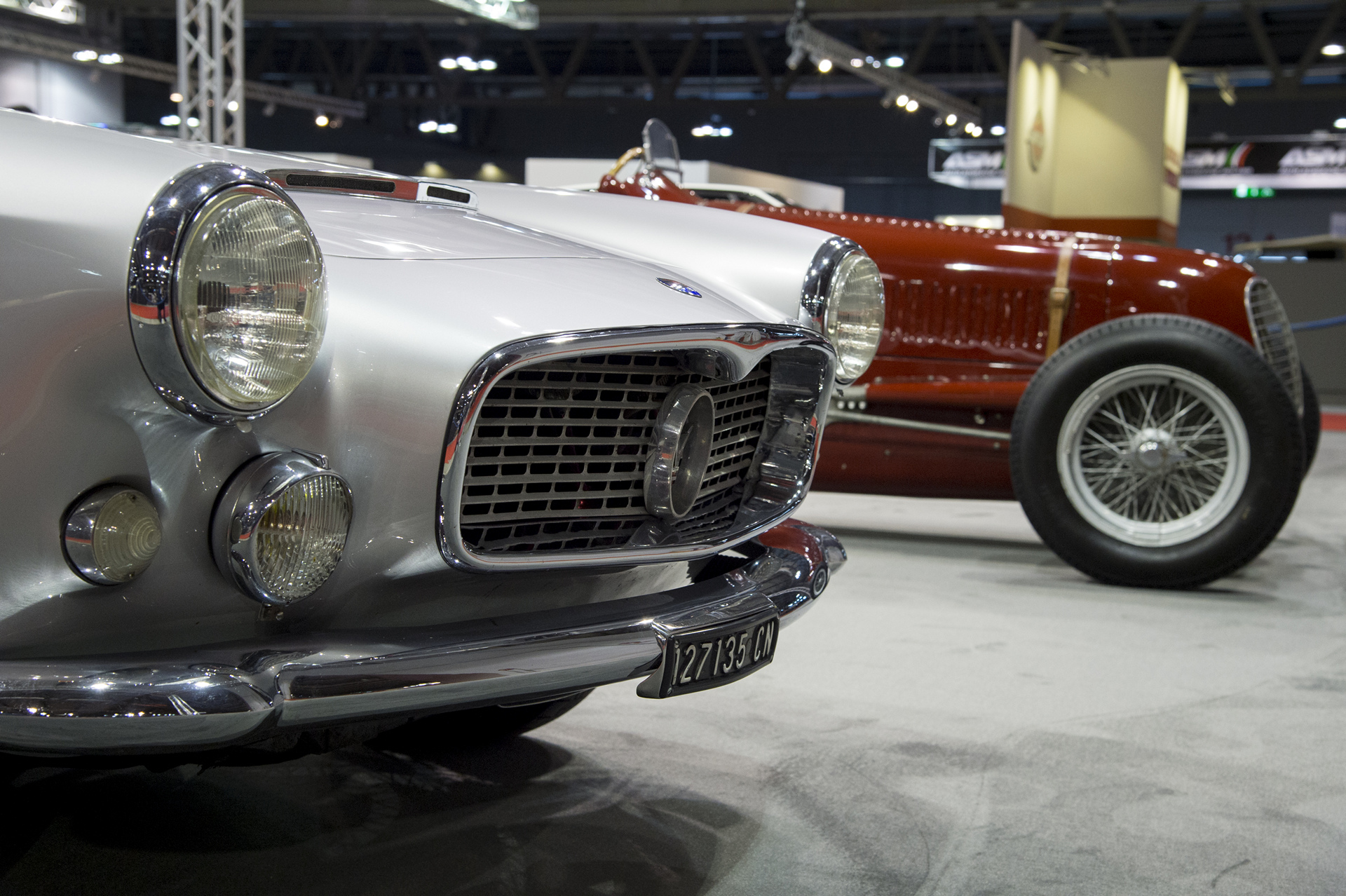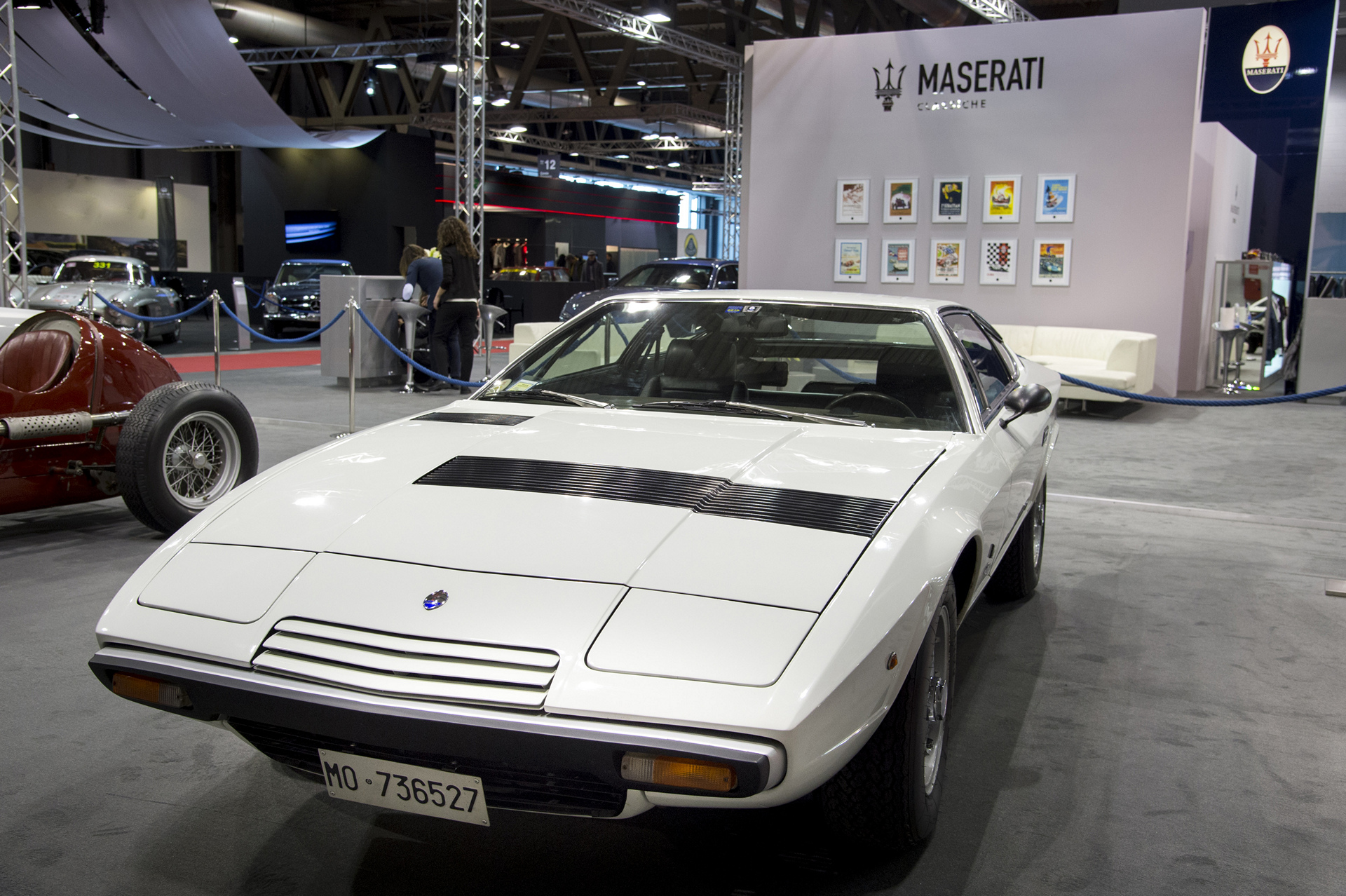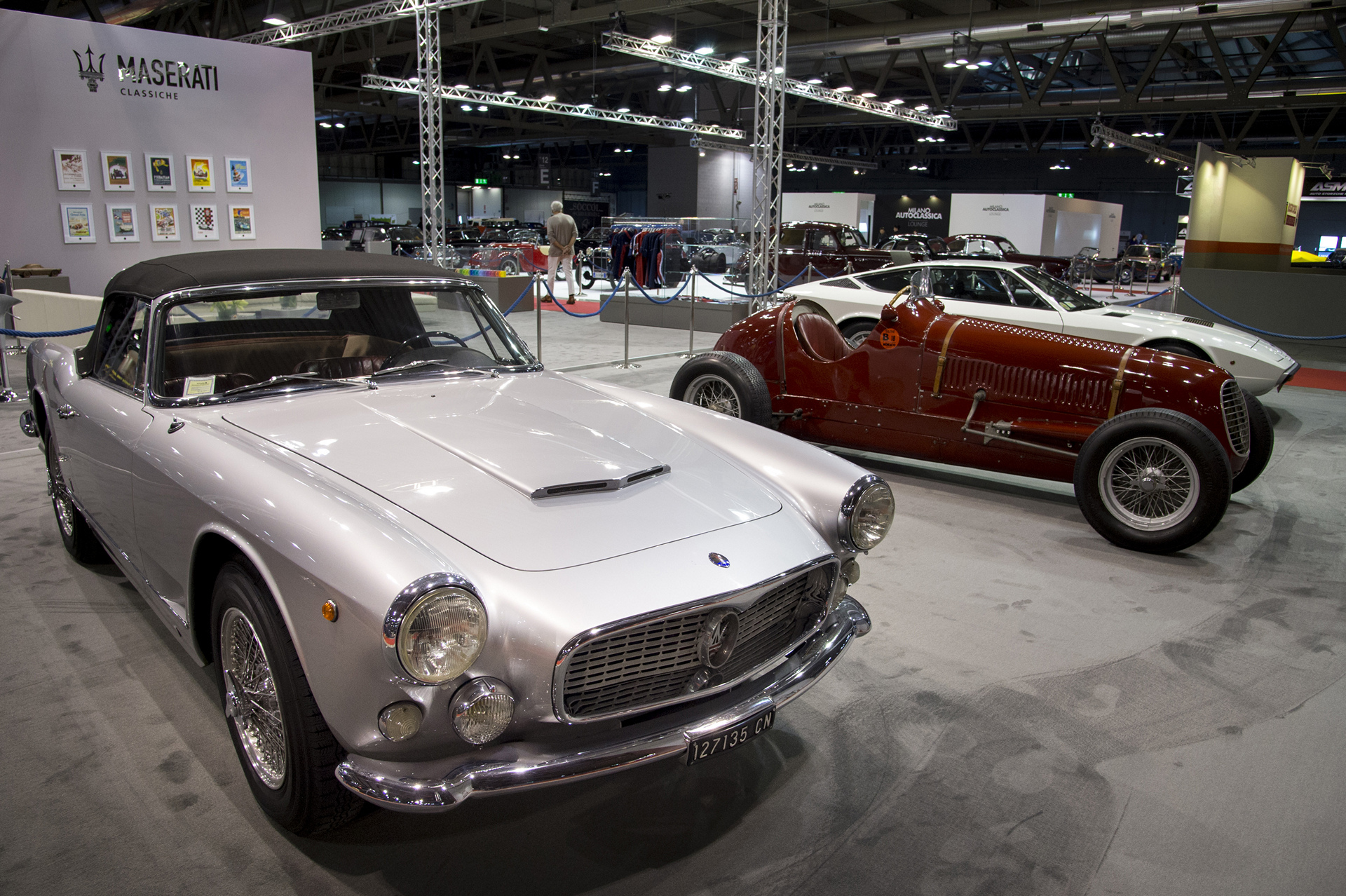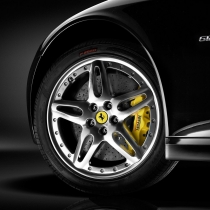The three Maserati classics on show were very interesting: an exclusive Tipo 6CM, an amazing single-seater racing car dating from the late 1930s; an elegant, glamorous 2+2 3500GT Spyder from the late 1950s, and an aggressive Khamsin, the 2+2 coupé designed by Marcello Gandini and created by Bertone in the 1970s. As well as the three exclusive classic Maserati cars, the stand also proudly displays a contemporary Ghibli S Q4 E-segment executive sedan, on show in the unique stylistic concept version which launched the “Zegna Edition”, interiors available on the Maserati Ghibli and Quattroporte sedans and the new Levante SUV.
The stand also incorporates the Maserati Store: with a blend of crafted details and contemporary design, choice quality materials and latest-generation fabrics, it offers for sale the key articles from the four merchandising lines: Maserati Corse, Contemporary, Officine Alfieri Maserti and Classiche. Four stylish collections, sporty and refined, for a look that is always contemporary and up-to-date.
The “Maserati Classiche” department, which has curated the Brand’s participation at the event, is an in-house entity entirely dedicated to classic Maserati cars and the promotion of the company’s immense historic heritage.
The Tipo 6CM (acronym of Six Cylinder Single-Seater in Italian) was an amazing single-seater racer of which 27 were built between 1936 and 1939; thanks to the Maserati Brothers’ determination, in 1938 it finally succeeded in defeating the seemingly invincible British E.R.A. cars, which had formerly kept all the Italians at bay. The car was very innovative, starting from the engine, a 175 horsepower in-line six cylinder with the cylinders cast in block with the head and paired by twos on a common crankcase in elektron, not to mention the adjustable torsion bar suspensions. This car’s successes began immediately on all the European circuits and continued for many years, with Carlo Felice Trossi and Gigi Villoresi at the wheel, as well as Maserati’s gentleman-driver customers.
In terms of its overall design and engine the 3500 GT Spyder, which received its market launch in 1958, was the direct heir to the famous six-cylinder racing cars; its considerable power of 220 HP gave it a top speed of over 230 km/h. It was styled as a sporty 2+2 saloon with a large boot and luxurious finishings. A tube platform chassis, independent front suspensions and solid rear axle combined to give this car outstanding stability. The 3500 GT went into regular production in the second half of 1957, the focus of eager attention. 259 units of the 3500 GT Spyder were built, while the Coupé remained in production until 1963, with a total of 1,405 cars produced.
The Khamsin, a 1970s model which succeeded the Ghibli, was developed while Maserati was under Citroën’s management. The design was commissioned from Bertone, and for them Marcello Gandini came up with a classic 2+2 car; it was engineered around the familiar 220 horsepower 4.9 litre eight-cylinder V 90° engine, cleverly positioned behind the front axle for the best possible dynamics and excellent weight distribution. Both the front and the rear suspensions consisted of independent double wishbone systems which guaranteed excellent tyre grip on bends, a significant factor for a car capable of getting up to 280 km/h. Just 430 units of the Khamsin were produced, and it remained in production until 1982.


